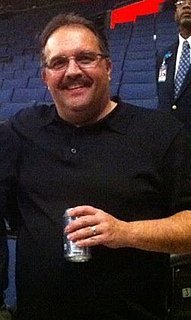A Quote by David McCullough
You can't be a full participant in our democracy if you don't know our history.
Related Quotes
I am a Mexican. The United States lived seventy-five years with the one party system in Mexico - the PRI - without batting an eyelid, never demanding democracy of Mexico. Democracy came because Mexicans fought for democracy and made a democracy out of our history, our possibilities, our perspectives. Democracy is not something that can be exported like Coca-Cola. It has to be bred from the inside, according to the culture, the conditions of each country.
The human heart is the first home of democracy. It is where we embrace our questions: Can we be equitable? Can we be generous? Can we listen with our whole beings, not just our minds, and offer our attention rather than our opinion? And do we have enough resolve in our hearts to act courageously, relentlessly, without giving up, trusting our fellow citizens to join us in our determined pursuit-a living democracy?
In Cuba, our experiment is not the best democracy and should not be a reference to anybody elses, it is ours. It has worked for us and the clearest evidence that our democracy has worked is that there is a revolution that has continued after a half century of facing down the most powerful empire. This has not happened many times in history.






































